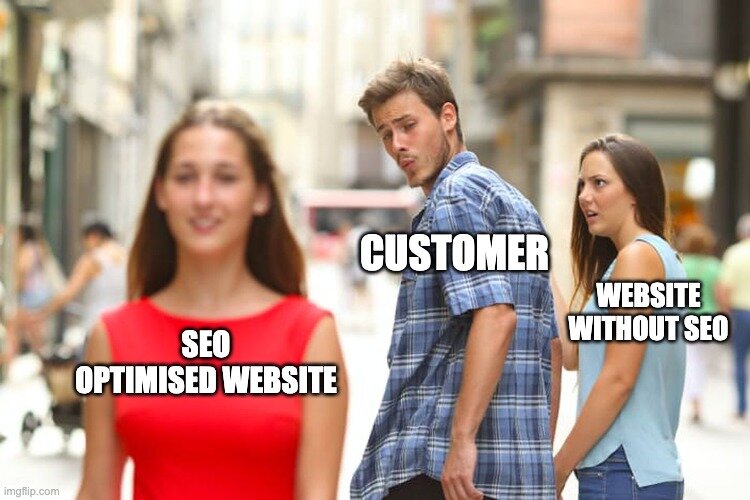Reasons your small business should invest in SEO
Search engine optimisation, or SEO, is an integral component of any website and digital marketing strategy. Whatever your marketing budget or business goals, optimising your content for the right keywords can help your company succeed and grow online at a relatively low cost than other marketing activities or paid advertising.
There are numerous benefits of SEO, especially for small businesses that operate on a tight budget. Even if your business is doing well now, be it through social media, email or direct marketing, it can always do better.
Having a robust search engine optimisation strategy can play a crucial role in the revenue growth strategy. Yet, many small business owners still fail to appreciate the value of investing in digital marketing focused on SEO.
If you’re not investing in SEO, you’re missing out whilst your competitors get ahead of you and start ranking higher in Google search or keep building a stronger local SEO presence with Google my Business.
So, don’t miss out on the most cost-effective digital marketing tools that bring real, measurable results.
Here are the top 5 reasons why small businesses need to invest in SEO right now:
More relevant website traffic
Improving website traffic is a key aspect of digital marketing.
No matter how beautiful or packed with features your small business website is, if it doesn’t generate traffic from Google and other search engines, then you’ll see no visitors and no conversions.
With SEO done right, you should be attracting more relevant traffic to your site from visitors who are actively looking for your services or product by entering specific search phrases, for example: “digital marketing consultant in London”.
By increasing the organic search traffic and optimising your website for relevant keywords, you can massively improve customer conversions that lead to an increase in sales.
Targeting terms based on the right search intent means that people looking for a service or product like yours are more likely to convert once they’ve landed on your website.
Increased brand visibility
Simply put, the more relevant and popular keywords you use across your website and off-page SEO, the more people that are searching for terms relevant to your small business will be able to find you.
A good SEO strategy will focus on increasing the number of relevant keywords you’re ranking for, improving your search ranking positions for those keywords and getting your web pages to show in the so-called SERP which stands for Search Engine Results Page and looks like this:
The more people can see your small business show up in SERP results, the more credibility and awareness your brand gains and as a result, users are more likely to click click onto your site and make an enquiry.
Lower cost of customer acquisition
SEO can bring very high ROI, so getting your website to rank well in search will result in reduced spending on paid marketing campaigns which can be pretty expensive depending on which channel you’re using and how much you’re bidding against your competitors.
Keeping high positions in search will require regular SEO maintenance. Still, with the reduced costs of other marketing activities and high conversion rates coming from the organic search traffic, you can comfortably dedicate a bigger chunk of your budget toward consistent search engine optimisation.
Competitive edge
Small business owners find it hard to compete against bigger companies in their niche, mostly due to tighter marketing budgets.
Whilst the big guys can afford to spend more on paid ads and a whole host of digital and traditional marketing campaigns, SEO can become a powerful digital marketing weapon that gives you a cost-effective, competitive edge.
With a strong, well designed and executed SEO strategy, you can go head to head with your competitors and show directly underneath their paid ads in search results.
Improved website usability
Google is the biggest search engine on the market, and they’ve recently announced that user experience will become one of the key ranking factors when it comes to search results.
A huge part of SEO practices focuses on keyword research, but there’s also a large technical side of SEO that boils down to improving the core web vitals and customer experience on your web pages.
By improving your SEO, you will make your website easier to use for visitors and, as a result, boost the search engine rankings. It’s a no-brainer, really, and in the coming years, we’ll see more and more businesses implementing the best UX design practices to improve their sales.


